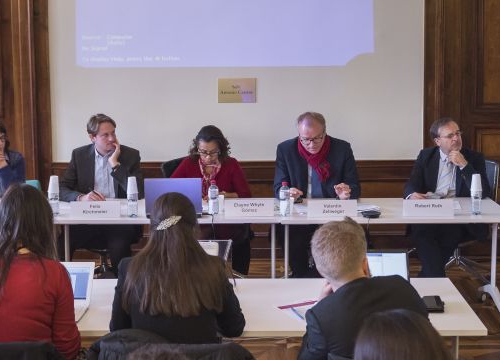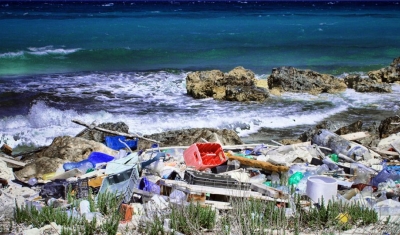The Treaty Body Members Platform in 2018


Olivier Chamard / Geneva Academy
14 January 2019
Launched in 2014 and now fully integrated in the Geneva Human Rights Platform, the Treaty Body Members Platform (TBMP) connects experts in United Nations (UN) treaty bodies (TBs) with each other as well as with Geneva-based practitioners, academics and diplomats to share expertise, exchange views on topical questions and develop synergies.
Around ten meetings are organized every year allowing peer exchanges among UN TBs experts, as well as discussions with other Geneva-based actors on issues of common concern.
Activities of the TBMP in 2018 included discussions on the harmonization of TBs, exchanges among peers and with external experts and other institutions on thematic issues, and briefings on the 2020 review of TBs by the UN General Assembly.
The Harmonization of UN TBs
In collaboration with the Office of the High Commissioner for Human Rights (OHCHR), several workshops involving members of all TBs addressed key harmonization issues like the simplified reporting procedure and the handling of individual communications.
‘These workshops allowed TBs members to share best practices and procedures and to identify avenues for the harmonization of their working methods’ underlines Felix Kirchmeier, Coordinator of the Geneva Human Rights Platform.

Exchanges on Fighting Corruption, Addressing Harmful Practices, Prior and Informed Consent and the Right to Life
In 2018, experts from all TBs – the Human Rights Committee, the Committee on Economic, Social and Cultural Rights, the Committee on the Elimination of Discrimination Against Women, the Committee on Enforced Disappearances, the Committee on the Rights of the Child, the Committee on the Elimination of Racial Discrimination, the Committee against Torture, the Committee on the Rights of Persons with Disabilities and the Committee on the Protection of the Rights of All Migrant Workers and Members of their Families – discussed a range of issues among themselves as well as with external experts and practitioners, including staff of the World Health Organization, Geneva-based NGOs or members of other mechanisms, like the UN Expert Mechanism on the Rights of Indigenous Peoples.
‘These exchanges notably addressed a human rights-based approach to fight corruption, the right of indigenous peoples to free, prior, and informed consent, how to address ‘harmful practices’ and the right to life as part of the drafting of General Comment No 36 on article 6 of the International Covenant on Civil and Political Rights’ explains Felix Kirchmeier.
Towards the 2020 Review
Several meetings, including specific briefings during the various Committees’ session and a discussion during the Chairpersons’ meeting in New York, also allowed UN TB members to be informed and reflect upon the ongoing discussions towards the 2020 TB Review by the General Assembly.










